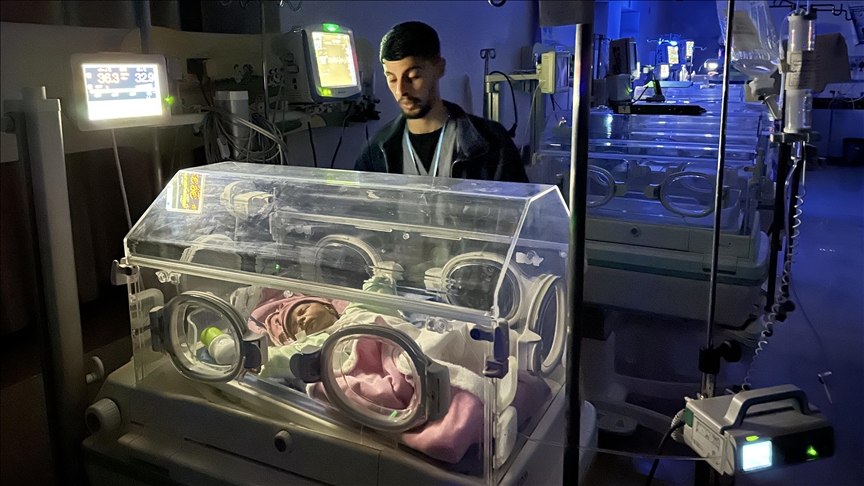

By Anadolu Agency
– Spokesperson urges ‘intensified, immediate actions’ as situation of pregnant women, newborns in Gaza is ‘beyond belief’
GENEVA
Nearly 20,000 babies have been born into the current war in Gaza, while 135,000 children in the Gaza Strip under age 2 are at “severe risk” of malnutrition, UNICEF said on Friday.
Noting that the number equals one baby born about every 10 minutes since Oct. 7, when the conflict began, Tess Ingram, a UNICEF spokesperson, told a press briefing in Geneva: “The situation of pregnant women and newborns in the Gaza Strip is beyond belief, and it demands intensified and immediate actions.”
“The already precarious situation of infant and maternal mortality has worsened as the healthcare system collapses,” Ingram stressed, adding that mothers face unimaginable challenges in accessing adequate medical care, nutrition, and protection before, during, and after birth.
She underlined that the trauma of war also directly impacts newborns, resulting in higher rates of undernutrition, developmental issues, and other health complications.
Pregnant and breastfeeding mothers and their babies are living in “inhumane conditions, makeshift shelters (with) poor nutrition and unsafe water.”
“This is putting about 135,000 children under the age of two at severe risk of malnutrition,” she warned.
On the mortality rate among the 20,000 newborns, she said that it is not possible to be sure about the infant mortality rate at the moment due to the current conditions.
“But it is safe to say that that children are dying now because of the humanitarian crisis on the ground as well as from the bombs and bullets,” she added.
The Israeli army has been waging a destructive war on Gaza since Oct. 7 last year, resulting in 24,620 deaths and 61,830 injuries – most of them children and women – and causing the displacement of more than 85% of the Gaza Strip’s population, according to Palestinian authorities and the UN.
We use cookies on our website to give you a better experience, improve performance, and for analytics. For more information, please see our Cookie Policy By clicking “Accept” you agree to our use of cookies.
Read More